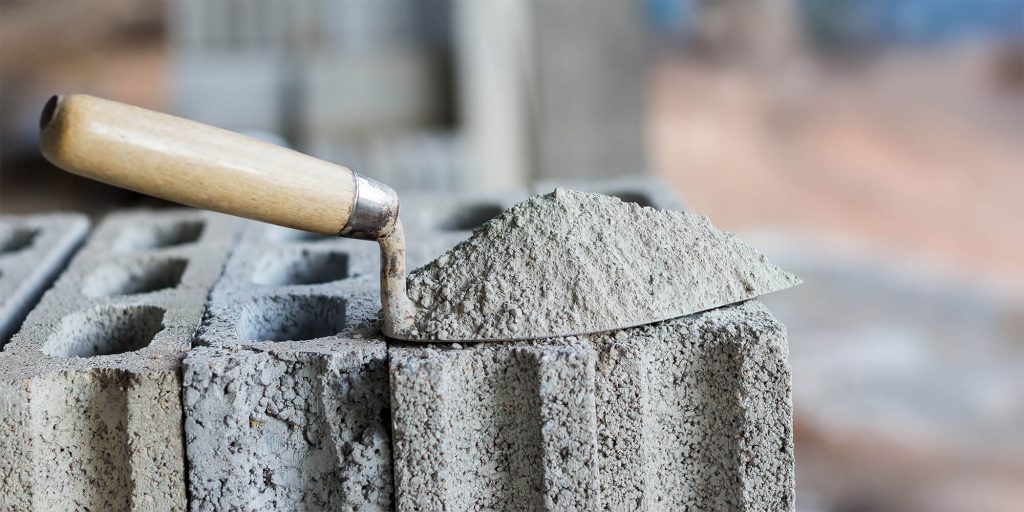Advertisement
According to Afrisam, the cement industry in South Africa produces approximately 20 million tons of cement a year. In 2019 the total demand for cement in South Africa was about 13 million tons but that dropped significantly last year due to the impact of the Covid-19 pandemic.
[/vc_column_text]
But elsewhere there is talk of a cement shortage. In the United Kingdom, for instance, DIY projects are being put on hold because of a shortage of cement, timber, steel and paint. The problem has escalated to such an extent that in some cases people have been advised to delay home improvement projects.
But will South Africa face such a problem? We talk to Njombo Lekula, managing director, PPC Southern Africa to find out if South Africa faces the same problems and ask if there are any other threats to the local cement industry.
According to the Construction Leadership Council in the UK the supplies of bagged cement are ‘growing areas of concern’ – are there similar concerns of this nature for the cement industry in South Africa?
Njombo Lekula (NL): South Africa is not facing supply shortages of cement at this period. When we went into a lockdown in March 2020; no one anticipated the increased demand in the market. The demand picked up mostly in the retail sector where most of the extended cement products are sold and indications are that this was mostly driven by home improvement projects.
Advertisement
The retail sector mainly sells extended product which is dependent on products like Slag and Ash used in the production of this cement type. A supply shortage of these extenders in the market had an impact on the supply of extended cement products however we have since seen the improvement of availability of these resources.
A separate issue that impacted supply over the last year is the transport strike that impacted the use of bulk tankers. Bulk cement is sold in large quantities delivered by special trucks and rail. The challenges in the transportation of bulk cement on road and rail have resulted in delivery issues for bulk cement movement capacity, affecting mostly the industrial sector.
The CLC says the shortage of cement is likely to have an impact on smaller firms as they don’t have the buying power of larger contractors – is there a similar danger of this in South Africa?
NL: In relation to the security of cement supply in South Africa, there is no danger of product shortage that could impact smaller firms. However, contractors must be encouraged to buy locally produced cement to contribute to the sustainability of our industry.
This is a matter of principle as regards to building our own economy and regulatory intervention, hence our advocacy for a speedy process in the local content designation of cement. Cement is a wholly South African produced product, it qualifies for this designation in terms of regulation 8 of the Preferential Procurement Regulations, 2017.
How much of an impact has the pandemic had on the supply of cement? Are these challenges over now?
NL: The impact of Covid-19 on the cement industry is undeniable. Perhaps the largest factor to adversely impact the industry has been the decline in large infrastructure projects pre-the pandemic which the entire construction industry could not escape.
However, with the renewed focus on rolling out new infrastructure projects we are optimistic that the prospects for the local industry are positive. There are urgent policy and regulatory interventions that we require to level the playing field for the local industry, which will remove some of these hurdles.
According to one report in January last year local cement manufacturers were being severely undermined by cheap imports from countries such as China, Vietnam and Pakistan. What should government and industry be doing about this?
NL: The issues around supply are related to factors outside the control of the cement industry. In our view these issues are temporary, need to be addressed and have not changed our view on the support required for a sustainable local clinker and cement manufacturing base. Through the TCI (The Cement Institute) we continuously engage the relevant government institutions on aspects that may have an impact on the industry and its ability to support the infrastructure projects
Are import tariffs the answer?
NL: Tariffs are a key ingredient in protecting local cement producers, against the unmitigated flood of cheap imports into our already pressured market. As mentioned, there are several other regulatory hurdles that must be resolved.
We are also calling for the formulation of the National Construction Masterplan which will be a multi-sectoral exercise and commitment to support and protect the industry.




